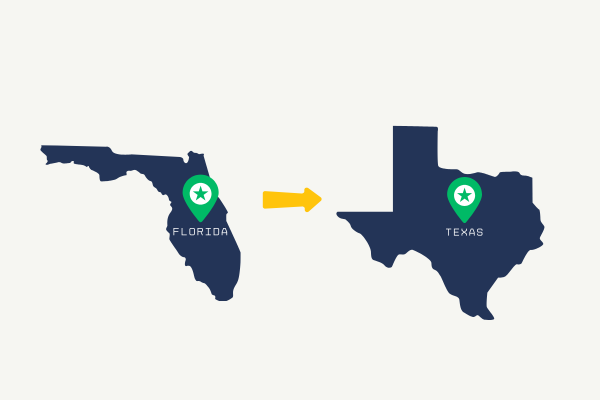
High-income earners face unique financial challenges, including minimizing tax burdens while maximizing wealth-building opportunities. With the right strategies, you can keep more of what you earn while aligning your finances with long-term goals.
Here are the top 5 tax-saving strategies every high-income earner should know, tailored for those looking for expert guidance from Austin CPA firms or a trusted tax accountant in Austin like Insogna CPA.
1. Maximize Retirement Savings with a Backdoor Roth IRA
As a high-income earner, you may not qualify for direct Roth IRA contributions due to income limits. However, the backdoor Roth IRA strategy allows you to enjoy the benefits of tax-free growth and withdrawals.
How It Works:
- Contribute to a non-deductible traditional IRA.
- Convert the contributions to a Roth IRA, bypassing income restrictions.
Why It Matters:
- Roth IRAs grow tax-free, and withdrawals in retirement aren’t taxed.
- You can strategically use this method to build a tax-advantaged retirement fund.
This is an essential tool for high-income earners looking to maximize their retirement savings. Work with a personal CPA in Austin to ensure compliance and efficiency during the conversion process.
2. Optimize Deductions by Shifting Income to an LLC
If you earn additional income from consulting, freelancing, or side gigs, forming an LLC can unlock valuable tax benefits.
Benefits of an LLC:
- Deduct legitimate business expenses such as equipment, travel, and home office costs.
- Elect S Corporation status to reduce self-employment taxes by splitting income between a reasonable salary and distributions.
Why It Matters:
- Lower taxable income and keep more of your money.
- Separate personal and business finances, simplifying tax filings.
For expert guidance, turn to a small business CPA in Austin, TX who understands the nuances of Texas tax regulations.
3. Invest in Tax-Advantaged Opportunities like Oil & Gas Leases
High-income earners can leverage tax-advantaged investments such as oil and gas leases to reduce their taxable income while diversifying their portfolios.
Key Tax Benefits:
- Deduct up to 100% of tangible drilling costs in the year incurred.
- Intangible drilling costs also qualify for additional tax breaks.
Why It Matters:
- Reduce your taxable income now while exploring opportunities for long-term growth.
- Align your investment strategy with tax savings.
Navigating the complexities of these investments requires expertise, so consult with a tax advisor in Austin who can tailor the strategy to your financial goals.
4. Leverage Health Savings Accounts (HSAs) for Triple-Tax Savings
An HSA is not just a healthcare tool—it’s a powerful tax-saving strategy for high-income earners with high-deductible health plans (HDHPs).
How It Works:
- Contribute pre-tax dollars to your HSA (subject to annual limits).
- Invest HSA funds to grow tax-free.
- Use withdrawals tax-free for qualified medical expenses.
Why It Matters:
- Lower your current taxable income.
- Create a tax-free savings vehicle for future healthcare expenses or even retirement.
For high-income earners, HSAs offer unparalleled flexibility and tax advantages. A CPA firm in Austin, Texas, like Insogna CPA, can guide you on contribution limits and strategic usage.
5. Balance Savings and Investments with Strategic Financial Planning
Effective tax planning goes beyond this year’s returns—it’s about creating a balanced financial strategy that minimizes taxes while growing your wealth.
Key Strategies Include:
- Timing capital gains to reduce tax exposure.
- Using tax-loss harvesting to offset gains.
- Diversifying investments between tax-deferred, tax-exempt, and taxable accounts.
Why It Matters:
- Build a resilient portfolio that minimizes your tax burden.
- Align your financial decisions with your long-term goals.
By partnering with an accounting firm in Austin, you gain the expertise needed to balance your investment and tax strategies.
Why Work with Insogna CPA?
High-income tax strategies require precision and expertise. Insogna CPA is one of the top accounting firms in Texas, offering tailored solutions to help you maximize tax savings and achieve financial clarity.
What We Offer:
- Local Expertise: As a trusted Austin accounting service, we understand state-specific tax benefits.
- Comprehensive Support: Whether you need help with backdoor Roth IRAs, HSAs, or LLC deductions, we provide personalized guidance.
- Proactive Planning: We identify opportunities before they’re missed, ensuring long-term savings.
When you work with Insogna CPA, you’re not just getting an accountant—you’re gaining a partner in your financial success.
Take the Next Step: Protect Your Wealth with Expert Tax Strategies
Don’t let high taxes erode your hard-earned income. By implementing strategies like backdoor Roth IRA contributions, optimizing deductions through an LLC, and leveraging HSAs, you can keep more of your money while securing your financial future.
Contact Insogna CPA today to schedule a consultation. Our team of experienced Austin small business accountants and tax advisors will help you create a customized plan to protect your wealth.
Take control of your financial future with Insogna CPA—your trusted CPA firm in Austin, Texas.





